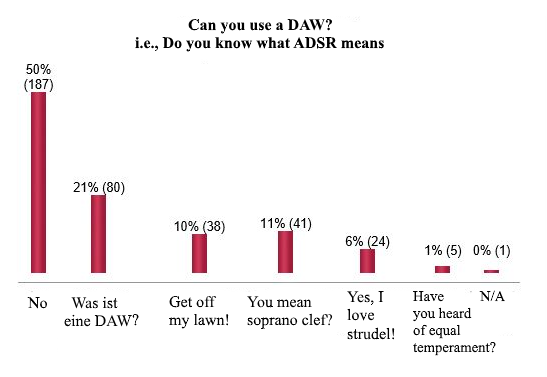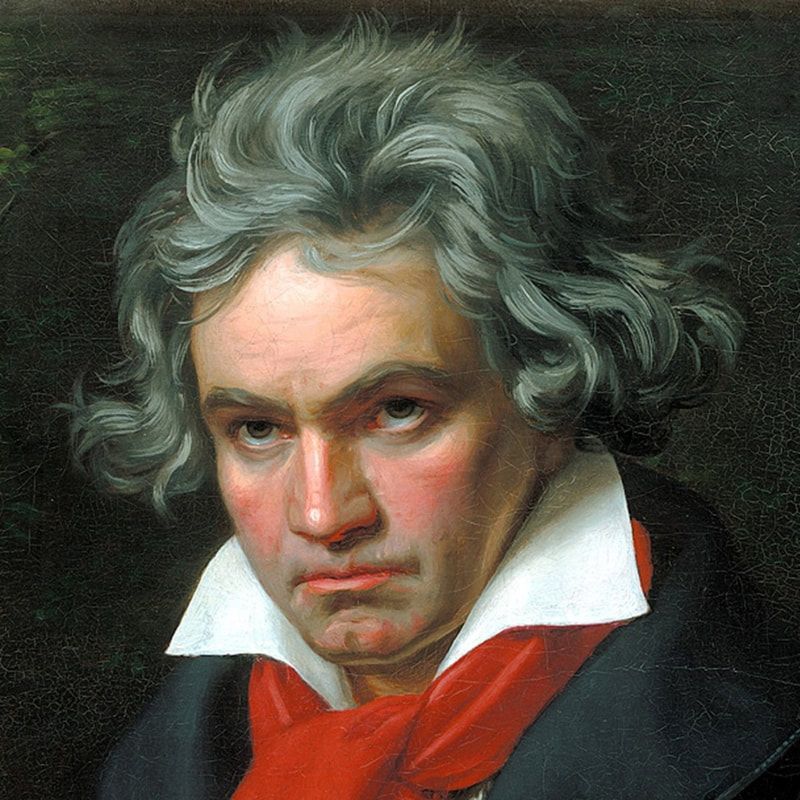Growing up in the 21st century, I was fortunate to receive some of the highest quality training in music production and sound design. In high school, I had access to top notch YouTube tutorials, and even participated in co-writing sessions with aspiring songwriters, which gave me a greater appreciation for pop music. It wasn’t enough to just make beats. You would need to collaborate, meaning you only had a few hours to create a song that had the potential to resonate with hundreds of millions of people, or perhaps billions. Co-writing sessions would quickly reveal how fine-tuned your ability to communicate musical ideas really was. In college I continued to make beats and also took an Ableton class. The experience gave me the ability to design sounds from scratch (if you only write for acoustic instruments, you will never have that same depth of understanding sonic construct).
Both pop and EDM art forms require not only digital audio workstation (DAW) literacy, but for the musician to be at the top of their game in technical proficiency, spectral analysis and creativity in the case of, well… both. Dubstep masters like Skrillex would produce 12-18 hours a day, often taking breaks only when his ability to have children in the future would be endangered by the heat generated from his laptop. His ability to compose and influence multiple genres was legendary. With no exceptions, if you can’t operate a DAW, you can’t create EDM music. In the case of pop music, if you can’t write a hook that will captivate millions, you will not be invited to co-writing sessions.
One thing I forgot to mention. I live in an alternate universe with a weird time continuum, so while I was raised in the 21st century, I grew up to be an adult in the early 19th century to late 18th century, and let me tell you something—over this strange period of time, musical foundations like sound design and spatial awareness are disappearing with the percentage of people that can operate a DAW such as Pro Tools or Ableton Live down to 0 percent, according to some surveys.

Two primary sources for learning to use a DAW are YouTube tutorials and paid platforms like Academy.fm and Lynda.com. YouTube has all but disappeared in the 19th century, with European leaders pinning the blame on the internet not being invented yet. In the 21st century, it was common for homes to have a working computer with at least one DAW installed. There were even special desks designed for producers. In 1800, I traveled through Germany and Austria and could not find a single computer store. In 2011, approximately 365 million PCs were sold, but that number plunged to 0 in 1909. Demand for cricket lessons competes with sound design studies, but also, fewer parents are requiring their children to study music production as part of their upbringing.
Besides the decline in sonic literacy and proficiency, there has also been a decline in the quality of music which has been proven scientifically by Pret Entious, a postdoctoral scholar who may not know much about music but is very good at using irrelevant parameters and broad strokes to judge the quality of entire genres. Pret and his colleagues looked at 53 billion pieces of music between 2018-1780, running songs through a complex set of algorithms examining the following aspects of these pieces:
1. Timbre- sound color, texture and tone quality
2. Form- the structure of a piece of music
3. Variety of idioms- the extent to which pieces of music rely on preconceived formulas
The result of the study revealed that timbral variety has become laughable in the late 18th century, meaning pieces are becoming more homogenous. Translation: most classical music now sounds the same. A staggering percentage of pieces are written for piano solo, string quartet, or a standard orchestra, leaving no room for creativity and originality. Music has also become extremely formulaic, with the vast majority of pieces written in sonata form, predictably moving from the tonic to the dominant and back, and ending literally every section with the same perfect authentic cadence (PAC). The formulaic nature of classical music doesn’t end there. Nearly every subsection in a classical piece is written in either the sentence or period structure, and the Alberti bass, a cheap imitation of the early 21st century pop idiom known as the “millennial whoop”, can be heard in nearly every new piece.
An astonishing amount of popular classical music is written by three people, all from Austria: Joseph Haydn, Ludwig van Beethoven, and Wolfgang Amadeus Mozart. These three composers are responsible for virtually every surviving piece in the universe in which the 21st century comes after the 18th. You can credit Wolfgang, Joseph, and Ludwig for all the following hits:
Symphony #5, Symphony #7, Symphony #9, Symphony #40, Symphony #41, Symphony #102, Symphony #104, String Quartet #12, String Quartet #15, String Quartet #18, String Quartet #22, Piano Sonata in C major, Piano Sonata in G Major, Piano Sonata in Eb Major, Piano Sonata in A Minor, Piano Sonata in D Minor, Piano Sonata in Bb Major.
With only three people writing so much of what we hear, is it any wonder that all classical music sounds the same, using the same PACs, sentences, periods, Alberti bass, and sonata form?
Plot intelligence was also studied by Dr. Entious over a 10-year period using several metrics such as “Opera Ridiculousness Index” (ORI), which reflects how believable and engaging a plot of an opera is and the quality of the writing. Results showed that opera plots are not, in fact, engaging or believable, tending to repeat the same plot lines about love, death, and tragedy, and predictably ending only after a somewhat heavy soprano sings.
Performers that write their own pieces are rare today. I mean, can you imagine there are violin concertos out there performed by violinists who didn’t write them?! The travesty! When performers like Mozart claim to have written their own music, it is partially true, insofar as he writes the notes on a staff, but did he build the piano or invent the major scales that he uses? I don’t think so! (Don’t attack me, Wolf-Wolf fans!)
Equal temperament is another aspect of musical decline as the many untalented composers we hear in the concert hall can’t live without a well-tempered piano. The well-tempered piano automatically equalizes the intervals between adjacent notes on the keyboard. Many classical composers could not survive without equal temperament, which has become a sort of tonal training wheels. But unlike a child riding a bike, they never take off these training wheels to mature into better composers. Dare I even bring up Bach, whose sets of preludes and fugues, The Well-Tempered Clavier, popularized this trend and caused all keys to sound the same? You could easily argue that he’s more an accomplished formula creator than a talented composer.
Classical music is designed to please the aristocracy, not inspire. Classical composers are often more concerned with catering to their patrons, increasing the likelihood of getting paid (this is encouraged by the patrons, who notoriously keep wanting the same music to impress their friends).
In the 21st century, many schools had computers with music creation software installed. In the classical period, computers are nowhere to be found and students are relegated to writing notes on staff, hoping performers will take care of the sound and space on their own. Of course, the high cost of computers and the fact that they had not yet been invented is often cited as a hurdle. But the truth is that writing notes on staff is easier than designing sounds from scratch, and I have just proven scientifically that classical composers are generally dumber and less skilled than 21st century songwriters and producers.
What can be done? First, kids should stop playing sports. Second, every few months there should be an article going viral about how dumb and formulaic classical music is. If those two things happen, everyone will gradually become less dumb and you will all have me to thank. (Did I mention that I took an Ableton class once?)
Top40 Theory is a project aimed at providing advanced music theory knowledge and composition tools to pop songwriters and producers. Join the small but growing community of highly accomplished songwriters, producers, theorists, and composers at the Top40 Theory Facebook group. You can also follow Top40 Theory’s Twitter account and Facebook page, as well as join the mailing list via the form located in the sidebar, to receive updates about new posts and other pop music theory related musings.



